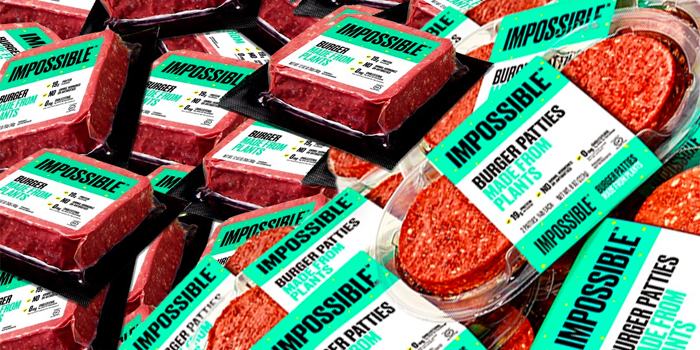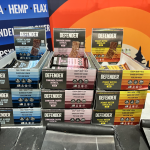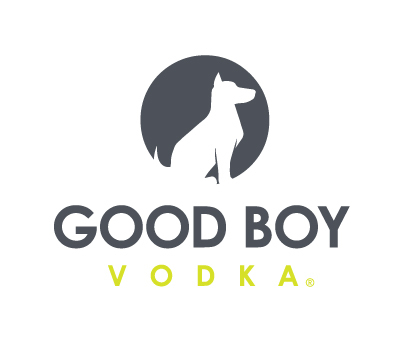Texas Bill Aims to Block Plant-Based Brands’ Use of Meat Terms

The push to regulate plant-based food and beverage brands’ use of terms associated with animal-based products is continuing this month with a new bill in Texas.
What is the bill?
The Texas House of Representatives last week passed a bill that would ban the use of meat terms such as “beef,” “chicken,” and “pork” by plant-based meat companies on their food labels and advertisements in the state. The legislature claims the goal of House Bill 316, also known as The Texas Meat and Imitation Food Act, is to prevent the sale of “misbranded” products that would be “misleading” to consumers.
Authored by Republican representatives Brad Buckley, Rep. Cody Harris, Rep. Reggie Smith, Glenn Rogers and Democratic representative Mary González, the bill passed in the House last Tuesday by a vote of 123-22.
What’s at stake (or shall we say, steak)?
The ability of fast-growing plant-based meat and protein companies to effectively gain market share in Texas.
The legislation defines meat as “any edible portion of a livestock carcass that does not contain lab-grown, cell-cultured, insect or plant-based food products.” If passed by the Senate and signed into law, the state would tag or mark plant-based meat alternative food products violating this law in order to “give notice that the food is, or is suspected of being, adulterated or misbranded.” The tag would indicate the products have been detained or embargoed and indicate they should not be consumed, removed from the premises or disposed of by sale or otherwise until a court grants permission. However, tagged perishable foods are allowed to be moved to a suitable storage place, the bill states. The tag or marking would be removed if the food was found to not be misbranded.
The bill also blocks plant-based meat brands from including claims comparing the food’s nutritional values to that of meat.
“Our goal here today with this bill is to have clear and accurate labeling so the consumer has no doubt what they’re purchasing,” Rep. Buckley said during the bill’s debate, Dallas News reported. “The most frequent call I’ve gotten is from vegetarians that are for this bill. It is not anti-plant based, anti-cell culture.”
How have industry groups responded?
Texas livestock groups including the Texas & Southwestern Cattle Raisers Association (TSCRA), Texas Poultry Federation and Texas Pork Producers Association have expressed their support for the bill.
“Truth in labeling is important,” the TSCRA tweeted after the House’s passage of the bill last week. “We’re one step closer to getting rid of misleading packaging on fake meat in TX.”
Plant-based industry groups including the Plant Based Food Association (PBFA) and The Good Food Institute (GFI) have spoken out against the bill. The PBFA registered its opposition to the bill in March, calling the bill a “misguided attack on innovation and all food producers’ free speech rights to use words and phrases that consumers understand.”
“The bill presents an attempt to impose new restrictions on how plant-based companies communicate with their customers, infringing on their First Amendment rights to label their foods with clear, non-misleading terms,” PBFA said in its statement.
Scott Weathers, senior policy specialist at GFI, said the bill is “a patchwork of unnecessary regulation that will make it harder for Texans to do business.”
“Label censorship bills are attempts to use the power of state legislatures to kneecap the plant-based industry, including real companies and real people who are serious about producing more sustainable, climate-forward foods,” he said. “Fortunately, consumer demand for plant-based products is exploding, including in Texas. In just the past two years, the plant-based industry grew more than twice as fast as overall food sales. We look forward to seeing the Texas Senate reject this unconstitutional proposal.”
The bill follows a slew of legislation aimed at regulating plant-based food product labeling. Last month, the Dairy Pride Act was reintroduced to the U.S. House of Representatives and Senate that would ban plant-based dairy alternative products from using dairy-related terms on their labels. Tofurky and GFI last month lost an appeal to block a Missouri labeling law that would make it illegal for plant-based meat producers to represent products as containing animal meat. Several other legal battles over similar state-level regulations are ongoing in states including Louisiana and Arkansas.
What’s next?
The bill was introduced in the Texas Senate last Wednesday, and was read for the first time and referred to the Senate’s Business & Commerce committee yesterday. If the bill passes through the committee, it will be brought to the Senate floor for debate, where it may be further amended. If passed in the Senate, the law will go into effect on September 1, 2021.
















